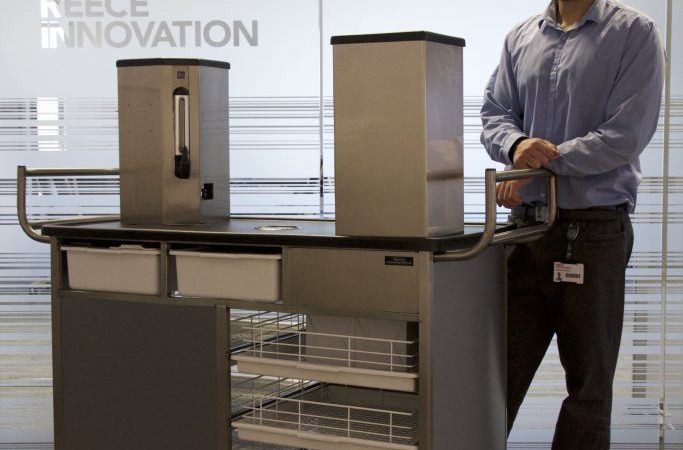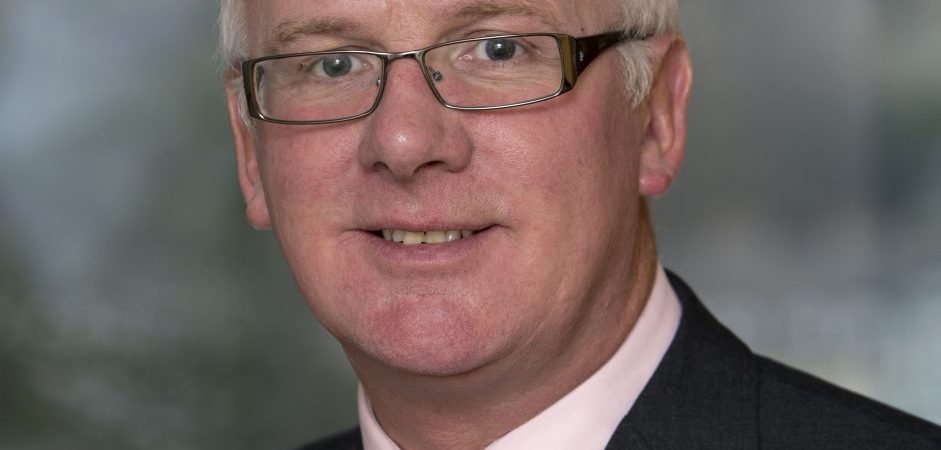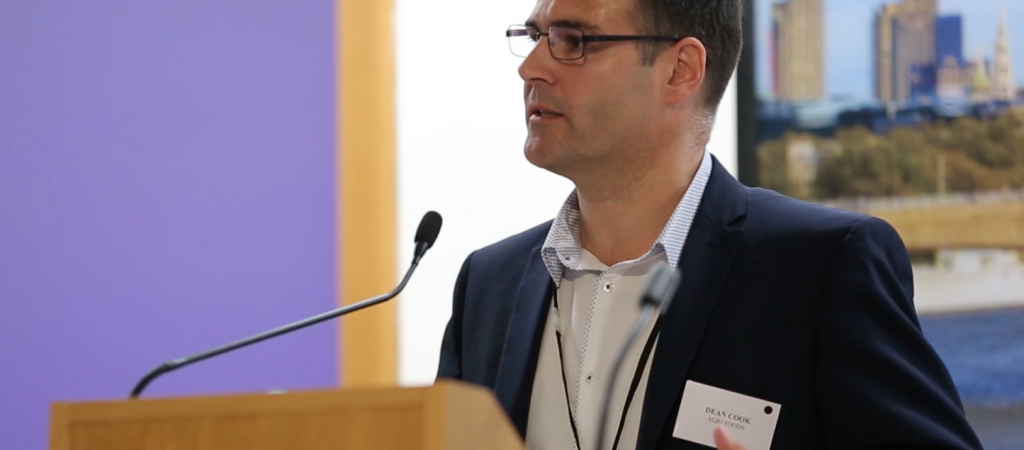As Regional Manager – North East and Yorkshire & Humber, what does your new role entail?
Primarily my role is about stakeholder engagement and building our regional presence. It’s about developing relationships with local leaders driving the innovation agenda. I will also be working to make Innovate UK more accessible from a regional level and working with partners to align regional and national strategy so it works for the collective good. Where are the intersections where this alignment can maximise the return to the UK economy?
I am therefore delighted to be working with the North East LEP as there is so much great work taking place and I am keen to raise awareness of this.
How would you characterise Innovation and the sector as a whole in the North East?
From an area rich in industrial heritage, it’s fascinating to see how the region is transforming these traditional industries so they’re fit for purpose in the 21st century, or what some are calling the ‘4th Industrial Revolution’.
For example, it’s no surprise that digital technology is a thriving sector for the North East and the region is a key player when it comes to initiatives like big data and cloud computing. The adoption of these technologies across the local economy is also transforming the other sectors that they touch upon.
I have also been really impressed by the joined up approach to innovation in the North East. The development of Science Central in Newcastle is a great example of strong partnership working between the local council, Universities, LEP and business community.
How can Local Enterprise Partnerships (LEPs), work with Innovate UK and support its work?
Going back to the question above, it’s vital that we develop a joined up approach and a joint vision; something everyone is collectively working towards.
We need to look at where the regional and national innovation strategies dovetail and focus on investment and funding to support those initiatives. We need to collectively nurture successful clusters and shine a spotlight on particular business areas and geographies where this is happening. Communication is also important and we will be looking at more opportunities for joined up working whether it’s sharing intelligence or promoting support for businesses.
How will Innovate UK’s new delivery plan support and grow innovation businesses?
For the past nine years, Innovate UK has been focused on driving innovation across the UK. The new delivery plan builds on the momentum we’ve already made by focusing our work on clearer sector groups and supporting companies with a real appetite to grow.
I have already touched upon the connectivity between regional and national innovation – this is one of our five strategic priorities. We will also be looking at how we work more closely with the wider research community and maximising the work and connectivity of our National Catapult centres, which offer a real opportunity for Local Enterprise Partnerships.
We have evolved our funding models too. In the next couple of years Innovate UK will be offering loans and other forms of finance in addition to our standard grants. This is to make sure businesses get the right kind of funding at the right time and opens up the range of projects that they can apply for, allowing us to help businesses scale to their needs.
Most importantly, we have simplified what we offer making it more accessible and open. It will be clearer who businesses need to engage with and how they can make the most of our support.
What have been some of Innovate UK’s key successes to date?
To date, we’ve supported 7,600 organisations, injecting £13.1bn into the national economy – that’s a 7.3% return on investment for every pound spent. We’ve also helped create 55,000 new jobs; seven per organisation we’ve invested in.
Will Brexit impact Innovate UK’s role going forward?
It’s business as usual for us right now, and we will continue to work with colleagues across Government to assess next steps. However, we shouldn’t lose sight of the fact that a third of the £1bn support for research that the UK receives from Europe through programmes such as Horizon 2020, comes to UK SME businesses and technology organisations. It’s important that we continue to find ways to nurture this cornerstone of the economy.
So looking ahead, innovation must play a significant role in stimulating future economic growth as we look to access new markets abroad. It’s never been more important for us to remain focused on our delivery plan.
What can you tell us about Government’s National Innovation Plan?
All I can say for now is watch this space. We’re not sure when the plan will be launched but what I can say is Innovate UK will be publishing its sector strategies in the coming months.
For anyone that would like to know more about our sector strategies they’ll form a key part of this year’s Innovate 2016 conference (2-3 November), which takes place in Manchester. It would be great to see involvement from the North East’s innovation community, representing the strength of all the things happening here.
How will the new sector focus improve the work of Innovate UK?
It’s a chance for us to align industry needs within sector groups that have clear synergies. It will make it easier for businesses to see what we offer and how we can help them.
The four sector groups have been identified as:
Emerging and Enabling Technologies
Health and Life Sciences
Infrastructure Systems
Manufacturing and Materials
What sectors in the North East do you see as providing real economic growth moving forward? What are our USPs?
It’s probably too early into my new role to give a definitive answer but there are certainly initiatives that are attracting my attention.
There is a lot of momentum gathering at NETPark in County Durham with a cluster of businesses doing cutting edge work around advanced material development and connecting into our Catapult network. Newcastle Science Central will be home to a new National Centre for Ageing Science and Innovation, one of three new National centres announced for the site. In fact the broader offer here is truly exciting as a test bed for future cities.
Energy is another sector where the North East is excelling. From offshore wind, wave and tidal energy to advances in battery technology for the automotive industry, there is a lot happening here. This becomes even more compelling when you start looking at these supply chains across LEP boundaries and think about how to unlock synergies from Northumberland down to the Humber coast – a true Northern Powerhouse approach.
I’m really looking forward to working with colleagues in the North East, as well as in Yorkshire and Humber, to marry what’s happening regionally with innovation strategies nationally.








